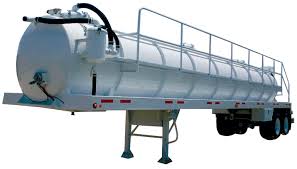July
2015
Maine Court Holds That Unregistered Tanker Trailer Is Not A Covered “Auto”
The United States District Court for the District of Maine recently held that a tanker trailer which was unregistered and utilized only on the insured oil company’s private property constituted “mobile equipment” rather than a covered “auto” within the meaning of the subject commercial auto policy, thereby precluding coverage for an oil spill from the tanker. J&S Oil Co. v. HDI-Gerling Am. Ins. Co., No. 1:14-CV-00016-JDL, 2015 WL 1825688, at *1 (D. Me. Apr. 22, 2015)
J&S Oil Co. (“J&S”) purchased a commercial automobile policy from HDI–Gerling Insurance Company (“HDI–Gerling”) through its agent Energi Insurance Services (“Energi”). HDI–Gerling was aware of the tanker as Energi inspected the facility, but the parties never discussed whether the tanker was covered under the policy. The policy provided that HDI–Gerling would pay for covered pollution costs relating to ownership, maintenance, or use of covered “auto.”
J&S purchased a tanker trailer intending to move oil between their Manchester and Waterville, Maine locations. However, the tanker remained in use only at the Manchester facility. The tanker moved around the facility via an access road that was owned and maintained by J&S and was never used on a public road. Since the tanker never left the facility, J&S did not register it with the state or have it inspected. In March 2012, 1,500 gallons of oil leaked out of the tanker while it was parked at the Manchester facility. HDI–Gerling denied coverage for the spill and J&S filed suit in the District Court.
Both parties filed motions for summary judgment. J&S argued that the tanker fell within the definition of an “auto,” defined under the policy as, [a] motor vehicle, ‘trailer’ or semitrailer designed for travel on public roads; or any other land vehicle that is subject to a compulsory or financial responsibility law or other motor vehicle insurance law where it is licensed or principally garaged. However, ‘auto’ does not include ‘mobile equipment.’” HDI–Gerling countered that there was no coverage because the tanker constituted “mobile equipment,” defined under the policy as:
- Bulldozers, farm machinery, forklifts and other vehicles designed for use principally off public roads; [and]
- Vehicles maintained for use solely on or next to premises you own or rent…
J&S responded that the language of the policy was at minimum ambiguous because the tanker trailer could fall under both definitions.
The Court disagreed, saying that the policy specifically stated that “mobile equipment does not include land vehicles that are subject to a compulsory or financial responsibility law.” The Court held that the tanker was not a covered “auto” because only a vehicle that is operated on a public way must be registered. It was undisputed that J&S never registered the tanker trailer and was not required to do so because it was used only on the private access road. The Court ultimately held that the language of the policy was unambiguous and the tanker trailer was not covered under the policy.
The Court also held that HDI–Gerling was not stopped from denying coverage. Although Energi was aware of the tanker’s presence at the facility, the Court found that HDI–Gerling did not mislead J&S into believing the tanker was covered.
J&S filed an appeal of the Court’s decision to the First Circuit Court of Appeals.





